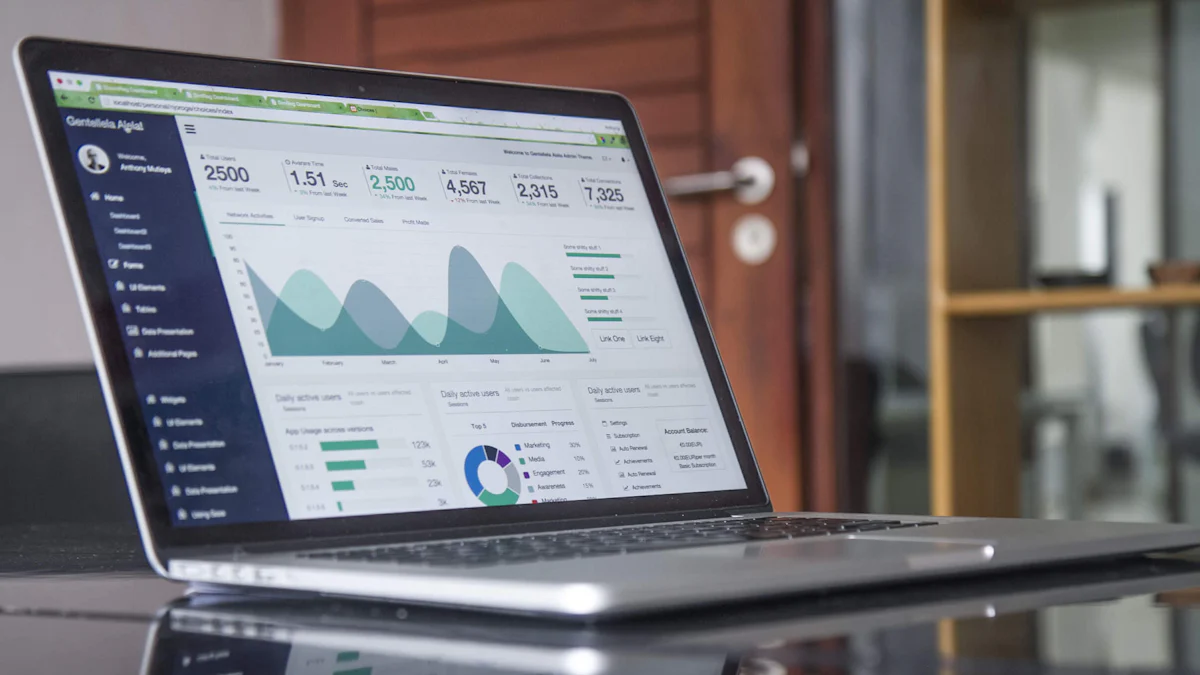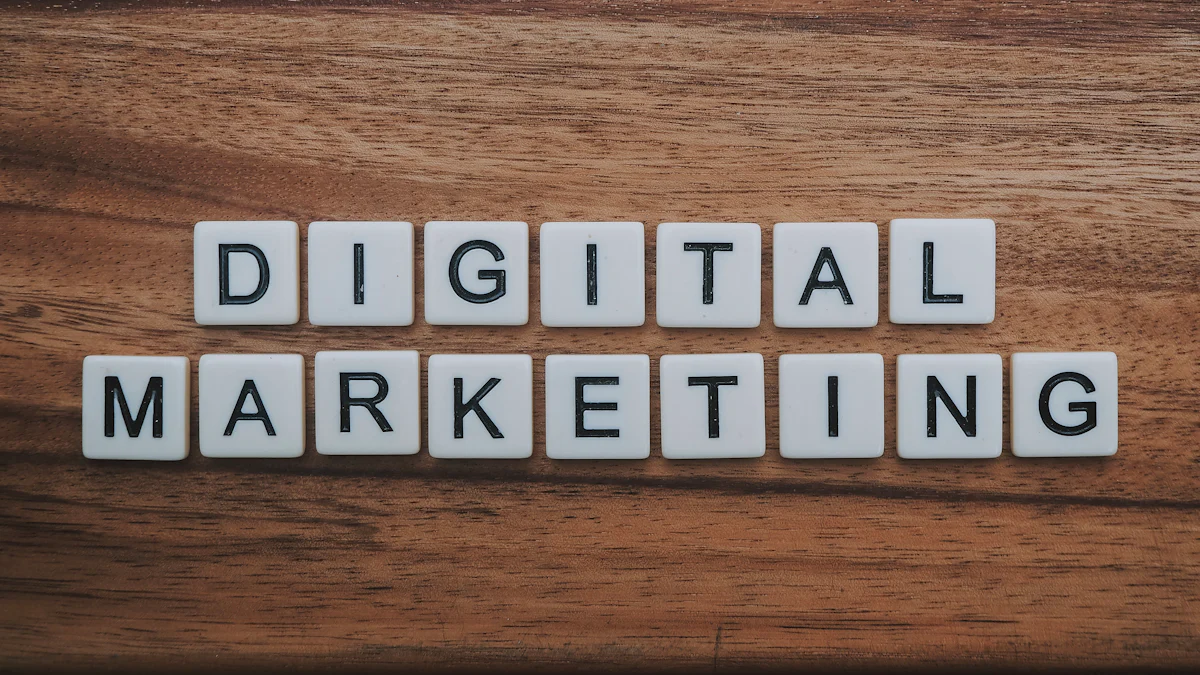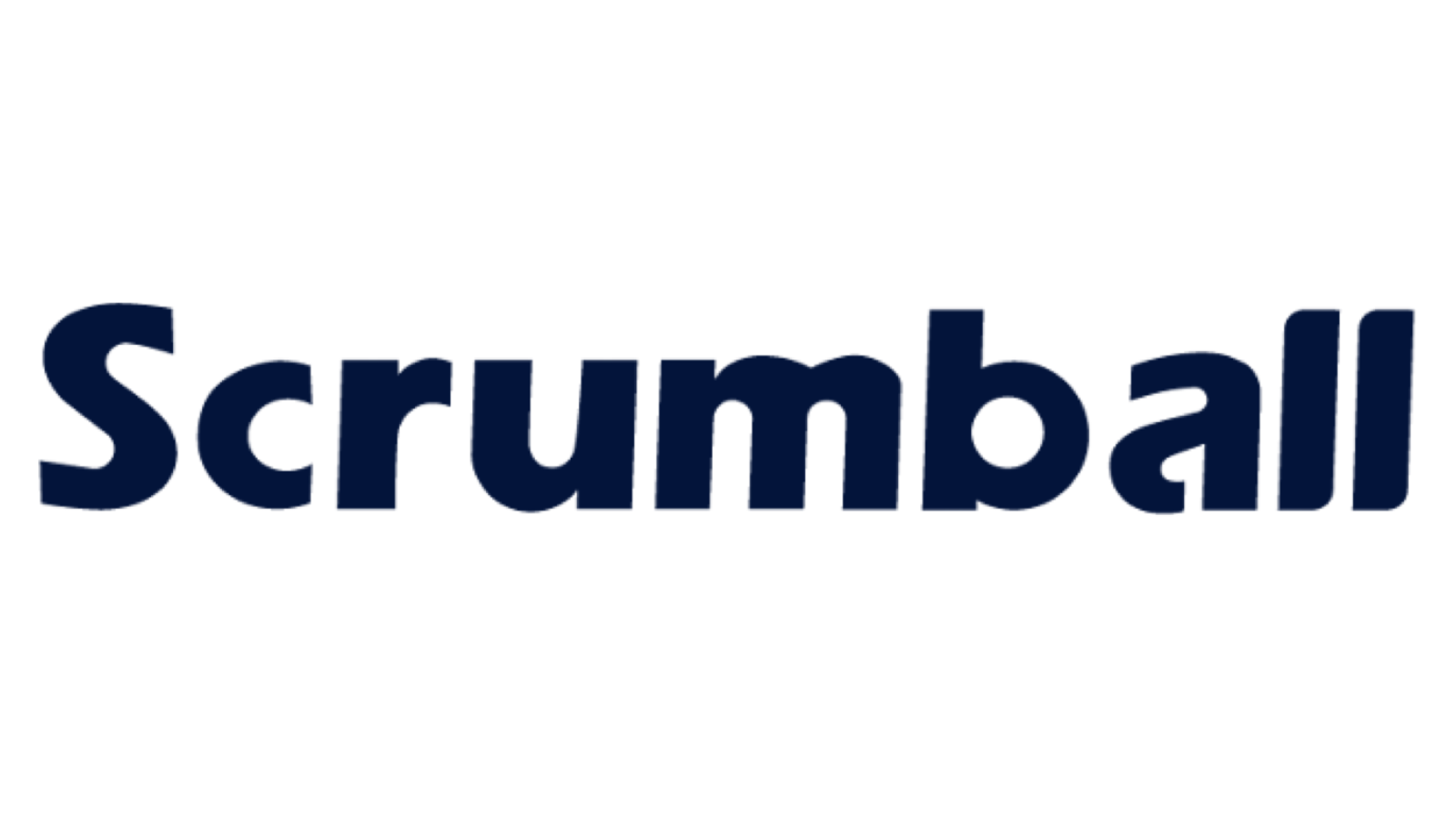How Does Marketing Automation Work in 2025

Marketing automation in 2025 transforms how you connect with customers by answering the question of how does marketing automation work. With artificial intelligence (AI) and machine learning, it eliminates repetitive tasks and allows you to focus on creativity. AI systems can now analyze vast amounts of data to deliver personalized experiences tailored to individual preferences. For example, email campaigns can segment audiences, customize messages, and optimize send times without manual effort.
The adoption of marketing automation tools has surged, with 80-90% of companies expected to use them by the end of 2025. These tools streamline your processes, ensuring a seamless customer journey while enabling real-time campaign optimization.
What is Marketing Automation in 2025?
Definition and Core Concept
Marketing automation in 2025 refers to the use of advanced technologies like artificial intelligence (AI) and machine learning to streamline marketing tasks and improve customer engagement. It enables you to automate repetitive processes, such as email campaigns, social media posting, and lead nurturing, while delivering personalized experiences. Unlike earlier systems, modern marketing automation capabilities focus on hyper-personalization and real-time optimization. These tools integrate seamlessly with various platforms, ensuring a consistent experience across all channels.
You can think of marketing automation as a strategy that combines data-driven insights with automation tools to create meaningful customer interactions. By leveraging AI-driven insights, you can better understand your audience and tailor your campaigns to meet their needs. This approach not only saves time but also enhances the effectiveness of your marketing efforts.
Evolution of Marketing Automation
Marketing automation has come a long way since its inception. In the late 1980s and early 1990s, businesses began using automated email systems to reach their customers. By the late 1990s, customer relationship management (CRM) systems started incorporating marketing automation features, making it easier to manage customer interactions. The mid-2000s saw the rise of social media, which transformed how brands engaged with their audiences. Marketing automation platforms began integrating social media management tools to keep up with this shift.
Today, marketing automation platforms offer advanced features like predictive analytics, lead scoring, and omnichannel marketing. These tools allow you to create personalized campaigns that resonate with your audience. The growing reliance on AI has further enhanced these platforms, enabling real-time adjustments and cost-effective solutions for businesses of all sizes.
Role of AI and Machine Learning in Automation
AI and machine learning play a central role in marketing automation in 2025. These technologies go beyond executing tasks; they actively shape your marketing automation strategy. AI systems analyze customer behavior and preferences to create personalized content, whether it's for emails, advertisements, or websites. This level of personalization increases the likelihood of conversions by showing your audience the most relevant content.
Machine learning enables dynamic content optimization, allowing you to adjust campaigns in real time based on performance data. For example, AI can segment your audience for email marketing, ensuring hyper-targeted messaging. Automation tools also manage complex campaigns, freeing you to focus on creativity and strategy. By integrating AI into your marketing automation strategy, you can enhance efficiency, improve customer experiences, and stay ahead in a competitive market.
Key Marketing Automation Features and Tools

Advanced Features
AI-Powered Personalization
AI-powered personalization is one of the most transformative marketing automation features in 2025. You can use AI to analyze customer data and create tailored content for each individual. For example, AI can help you deliver personalized email campaigns by segmenting audiences and optimizing messages based on user behavior. This ensures that your audience receives relevant content, increasing engagement and conversions. AI-powered chatbots also provide 24/7 customer interaction, enhancing the overall customer experience.
Predictive Analytics for Customer Insights
Predictive analytics allows you to anticipate customer needs and behaviors. By analyzing historical data, marketing automation tools can forecast trends and recommend actions. For instance, you can identify which leads are most likely to convert and prioritize them in your campaigns. This feature helps you make data-driven decisions and optimize your marketing strategies for better results.
Automated Lead Nurturing Workflows
Automated lead nurturing workflows streamline how you engage with prospects. These workflows guide leads through the sales funnel with minimal manual intervention. You can set up automated email sequences, drip campaigns, and personalized touchpoints to keep your leads engaged. This ensures that no opportunity is missed and helps you build stronger relationships with potential customers.
Essential Tools
Customer Data Platforms (CDPs)
Customer Data Platforms (CDPs) collect and unify customer data from various touchpoints. These tools enable you to create a single customer view, which is essential for delivering personalized experiences. CDPs also integrate with other marketing automation software, ensuring seamless data flow and accurate insights.
Marketing Automation Platforms (MAPs)
Marketing Automation Platforms (MAPs) are the backbone of your automation strategy. These platforms offer features like workflow automation, lead scoring, and campaign management. You can use MAPs to schedule, publish, and analyze content across multiple channels, ensuring consistent engagement with your audience.
CRM Integration for Lead Nurturing
Integrating marketing automation tools with customer relationship management (CRM) systems enhances lead nurturing. This integration allows you to track prospect activities and sync customer data in real time. By aligning marketing and sales efforts, you can create a cohesive customer experience and improve conversion rates.
Integration with Other Technologies
Social Media and Content Management Tools
Marketing automation tools integrate seamlessly with social media and content management tools. This integration simplifies campaign management and ensures consistency across channels. You can schedule posts, analyze performance, and optimize content for different platforms, all from a single dashboard.
Real-Time Campaign Optimization Tools
Real-time campaign optimization tools use AI to adjust your campaigns based on performance data. These tools help you identify what works and what doesn’t, allowing you to make immediate changes. For example, you can modify ad placements or adjust email send times to maximize engagement and ROI.
How Marketing Automation Benefits Businesses and Customers
Business Benefits
Enhanced Efficiency and Productivity
Marketing automation streamlines repetitive tasks, allowing you to focus on high-value activities. For instance, automating lead capture improves efficiency and accelerates revenue growth. Tools like email marketing platforms and behavior-based workflows save time by managing campaigns and nurturing leads automatically. Companies using marketing automation software report a 12% reduction in overhead costs, making operations more productive and cost-effective.
Improved ROI and Revenue Growth
Effective marketing automation drives measurable results. Automated campaigns achieve click-through rates three times higher than traditional methods. By integrating real-time analytics, you can optimize strategies and improve ROI. A full-funnel omnichannel approach enhances lead generation and customer retention, contributing to revenue growth. Personalized workflows and better lead management also increase sales productivity by 14.5%, ensuring your efforts yield tangible outcomes.
| Benefit | Description |
|---|---|
| Time Savings | Automation eliminates repetitive tasks, allowing businesses to focus on high-value work. |
| Improved Lead Management | Better organization and nurturing of leads enhance conversion rates. |
| Personalized Customer Journeys | Tailored communication increases engagement and customer satisfaction. |
| Real-Time Analytics | Enables data-driven decision-making to optimize marketing strategies. |
Data-Driven Decision-Making
Marketing automation software provides actionable insights through advanced analytics. You can track customer behavior, segment audiences, and refine targeting strategies. This data-driven approach ensures your campaigns align with customer preferences, improving their effectiveness. Real-time analytics also allow you to adjust campaigns instantly, maximizing their impact.
Customer Benefits
Personalized and Relevant Experiences
Marketing automation enhances the customer experience by delivering personalized content. Behavioral targeting ensures customers receive information tailored to their interests. For example, email marketing campaigns can use segmentation to send relevant offers based on past interactions. Personalized workflows create unique journeys, increasing customer satisfaction and loyalty.
With marketing automation, you can ensure customers see only what matters to them. By using behavioral targeting and buyer personas, you deliver content that resonates, building trust and engagement.
Faster and More Responsive Interactions
Automated tools like chatbots and behavior-based workflows enable faster responses to customer inquiries. These tools provide 24/7 support, ensuring no question goes unanswered. Immediate engagement with inactive users also improves retention rates. By automating routine tasks, your team can focus on providing personalized support, enhancing the overall customer experience.
Consistent Engagement Across Channels
Marketing automation ensures seamless communication across multiple platforms. Whether through email marketing, social media, or personalized workflows, customers experience consistent messaging. Cross-channel marketing campaigns maintain brand coherence, improving engagement and retention. This unified approach strengthens your relationship with customers throughout their journey.
Future Trends in Marketing Automation

Hyper-Personalization Through AI
Hyper-personalization has become a cornerstone of marketing automation in 2025. AI technologies now track user behaviors, preferences, and purchase histories to deliver content tailored to individual interests. This approach moves beyond traditional audience segmentation, allowing you to target a "segment of one." For example, AI-powered tools can analyze real-time data to send the right message to the right person at the perfect moment. This ensures your campaigns resonate on a personal level, increasing engagement and conversions.
AI-driven personalization also scales effectively. You can automate and individualize user experiences across vast audiences without manual intervention. Whether you're managing email campaigns, social media posts, or website content, AI ensures every interaction feels personal. This level of customization enhances customer satisfaction and builds long-term loyalty.
Voice and Visual Search Integration
Voice and visual search capabilities are reshaping how marketing automation works. With the rise of smart devices and image-based platforms, customers now rely on voice commands and visual inputs to find products and services. Marketing automation tools in 2025 integrate these technologies to optimize your content for voice and visual searches. For instance, you can use AI to identify trending keywords and create voice-friendly content that aligns with how people speak.
Visual search integration allows you to cater to customers who prefer image-based interactions. By analyzing user-uploaded images, your automation tools can recommend similar products or services. This feature not only improves user experience but also drives higher conversion rates. Adapting to these emerging search methods ensures your brand remains accessible and relevant in a competitive market.
Blockchain for Data Security
Blockchain technology is revolutionizing data security in marketing automation. Its decentralized ledger ensures data integrity by preventing unauthorized alterations. This makes blockchain ideal for storing sensitive marketing data, such as customer information and campaign metrics. You can also use smart contracts to automate and secure transactions, reducing fraud risks in marketing payments.
Blockchain enhances identity management by enabling secure verification processes. This reduces the risk of identity theft, ensuring your customers' data remains safe. Additionally, decentralized ad networks powered by blockchain increase transparency in advertising metrics. These networks minimize ad fraud and provide accurate performance insights. By adopting blockchain, you can build trust with your audience while safeguarding your marketing operations.
Automation in Emerging Channels (e.g., AR/VR, Metaverse)
Marketing automation is expanding into emerging channels like augmented reality (AR), virtual reality (VR), and the metaverse. These technologies are reshaping how you engage with customers by creating immersive and interactive experiences. AR and VR applications in marketing are still evolving, but they already show great potential. For example:
- Online shopping is becoming more augmented. Smartphone apps now allow customers to visualize products in their homes before purchasing.
- Virtual showrooms and interactive product demonstrations are gaining popularity, offering customers a hands-on experience without leaving their homes.
- Accessibility and interoperability remain critical. As the metaverse grows, marketers must ensure seamless integration with traditional platforms to maintain a consistent customer journey.
These innovations allow you to connect with your audience in ways that were unimaginable a few years ago. By leveraging marketing automation, you can streamline these experiences. Automation tools can help you manage AR/VR campaigns, track user interactions, and personalize content for each customer. This ensures your brand stays relevant in a rapidly changing digital landscape.
Ethical AI and Responsible Automation Practices
As you adopt AI-driven marketing automation, ethical considerations become essential. AI offers incredible opportunities, but it also introduces risks that you must address responsibly. Key concerns include:
- Privacy: AI systems collect vast amounts of data, which can lead to intrusive profiling and potential data breaches. You must prioritize data security and transparency.
- Bias and Discrimination: AI algorithms can unintentionally perpetuate biases, resulting in unfair or discriminatory marketing practices. Regular audits and diverse datasets can help mitigate this risk.
- Explainability and Transparency: The "black box" nature of AI complicates understanding its decisions. Clear communication about how AI influences campaigns builds trust with your audience.
- Consumer Deception and Manipulation: AI can create highly persuasive campaigns, but you must avoid exploiting consumer vulnerabilities or spreading misinformation.
By addressing these challenges, you can ensure your marketing automation strategy aligns with ethical standards. Responsible practices not only protect your customers but also enhance your brand's reputation. Ethical AI fosters trust, which is vital for long-term success in a competitive market.
Best Practices for Implementing Marketing Automation in 2025
Align Automation Goals with Business Objectives
To maximize the impact of marketing automation, align your automation goals with your business objectives. Start by defining clear marketing objectives that guide your strategy. Identify repetitive tasks that can benefit from automation, such as email campaigns or lead nurturing. Choose automation tools that match your goals and fit your budget. Personalize your strategies to enhance the customer journey and create meaningful interactions. Ensure your automation integrates across all channels to maintain cohesive communication. By following these steps, you can create a focused and effective automation strategy that supports your broader business goals.
Invest in Training and Skill Development
Marketing automation requires skilled teams to operate effectively. Invest in training programs to upskill your team and keep pace with evolving technologies. Focus on areas like data analytics, customer journey mapping, and content personalization. Teach your team how to master automation platforms and implement advanced email marketing techniques. Training in SEO and SEM integration can also improve your campaigns' visibility. Agile project management skills help your team adapt quickly to changes. By prioritizing skill development, you ensure your team can fully leverage marketing automation and deliver better results.
Focus on Data Quality and Privacy Compliance
Data quality and privacy compliance are critical for successful marketing automation. Familiarize yourself with legal frameworks like GDPR and CCPA to understand data handling requirements. Always obtain explicit consent from customers before collecting their data. Secure and segment your data to prevent unauthorized access. Regularly monitor and audit your data to maintain its quality and ensure compliance. Educate your team on best practices for data privacy to avoid potential risks. These steps not only protect your customers but also build trust in your brand.
Continuously Monitor and Optimize Campaigns
To achieve success with marketing automation, you must continuously monitor and optimize your campaigns. This process ensures your strategies remain effective and aligned with your goals. Start by setting clear objectives and key performance indicators (KPIs). These should focus on measurable outcomes like customer growth, sales progression, or contract value. Regularly review these KPIs to ensure they reflect your current priorities.
Encourage open communication between your marketing and sales teams. Collaboration helps refine strategies and improves overall performance. For example, sharing insights about customer behavior can lead to better campaign adjustments. Use a consistent review schedule to evaluate your campaigns. This allows you to identify what works and what needs improvement.
Integrating your campaigns with customer relationship management (CRM) systems or marketing automation platforms enhances visibility. These tools help you track performance accurately and make data-driven decisions. By connecting your campaigns to these systems, you can adjust strategies in real time. This approach ensures your marketing efforts remain efficient and effective.
Tip: Regularly analyzing campaign data helps you stay ahead of trends and adapt to changing customer needs.
Choose Scalable and Flexible Automation Tools
Selecting scalable and flexible marketing automation tools is essential for long-term success. These tools adapt to your business's growth and changing needs. For instance, they allow you to expand your campaigns as your audience grows. This scalability ensures your marketing efforts remain effective, even as your business evolves.
Flexible tools also enhance customer engagement by offering personalization and content variety. They guide customers efficiently through the marketing process, improving their overall experience. For example, predictive content powered by AI can boost lead conversions by tailoring messages to individual preferences.
| Advantages of Marketing Automation Tools | Description |
|---|---|
| Comprehensive tools for omnichannel engagement | Engage customers seamlessly across various channels. |
| Scalable for businesses of all sizes | Adapt to growth and changing business needs. |
| Predictive content boosts lead conversions | Personalize content using AI-driven insights. |
By choosing the right tools, you can streamline your marketing processes and achieve measurable results. Many businesses report increased revenue within the first year of implementing scalable automation solutions. This makes investing in the right tools a critical step in your marketing strategy.
Note: Evaluate your business needs carefully before selecting automation tools. Look for features that align with your goals and offer room for growth.
Marketing automation in 2025 empowers you to stay competitive by transforming how you engage with customers. Advanced tools like AI-powered personalization and predictive analytics allow you to deliver tailored experiences while improving operational efficiency. For instance, companies using AI for personalized emails report a 41% increase in click-through rates, and automated content recommendations boost conversions by 20%.
To thrive in a fast-evolving digital landscape, you must embrace trends like omnichannel marketing and mobile-first strategies. These approaches meet customer demands and enhance engagement. By adopting marketing automation, you can streamline processes, improve productivity, and build lasting customer relationships.
Tip: Focus on integrating AI and automation tools to optimize your campaigns and drive growth.
FAQ
What is marketing automation, and why is it important?
Marketing automation uses technology to streamline repetitive tasks like email campaigns and lead nurturing. It helps you save time, improve efficiency, and deliver personalized customer experiences. This approach ensures your marketing efforts are consistent and effective.
How do marketing automation tools improve customer engagement?
These tools analyze customer behavior and preferences to deliver tailored content. For example, they can send personalized emails or recommend products based on past purchases. This targeted approach increases engagement and builds stronger relationships with your audience.
Can small businesses benefit from marketing automation?
Yes, small businesses can use marketing automation to compete with larger companies. Automation simplifies processes, reduces manual work, and improves campaign performance. Scalable tools allow you to grow your marketing efforts as your business expands.
How does AI enhance marketing automation?
AI enables real-time data analysis and dynamic content personalization. It helps you predict customer behavior, optimize campaigns, and improve decision-making. AI-powered automation ensures your marketing strategies remain relevant and effective.
What are the key features to look for in marketing automation tools?
Look for features like workflow automation, predictive analytics, and CRM integration. These capabilities help you manage campaigns, nurture leads, and track performance. Choose tools that align with your business goals and offer scalability.
See Also
Essential Influencer Marketing Platforms To Explore In 2024
Key Influencer Marketing Trends To Monitor This Year
Grasping The Concept Of Product Seeding Today
Practical Influencer Marketing Data For Effective Strategies
Excelling In TikTok Influencer Marketing Techniques For 2024
